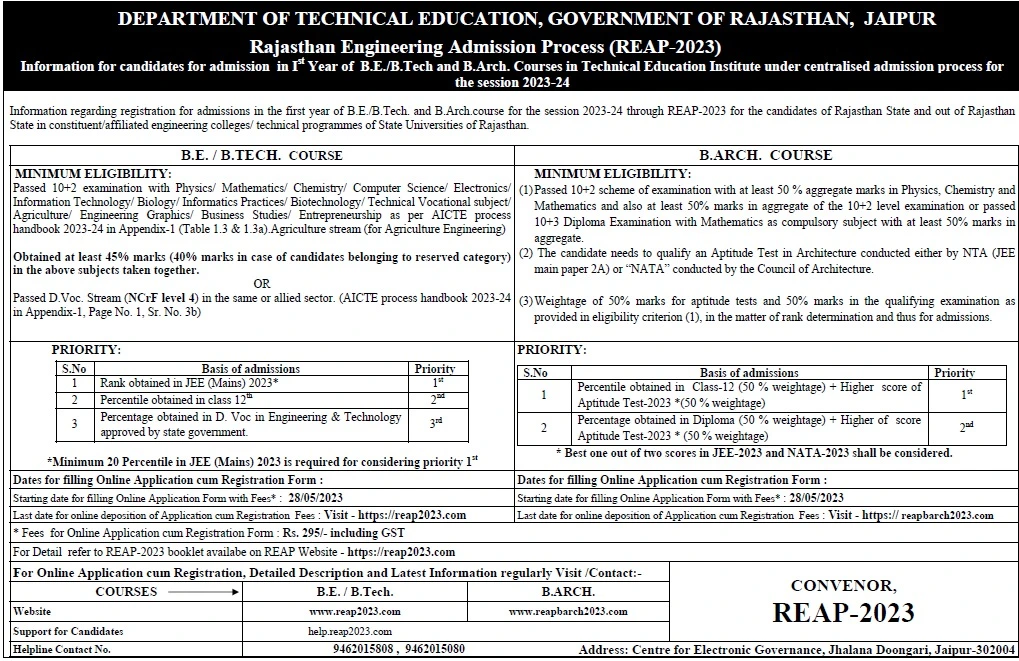
Our job is to make sure your college experience is everything it should be exciting, stimulating and successful.
The first year of the college is the year when students leave their schooldays and try to fit into an adult life. Energy levels are high and so are the curiosity levels. This is the time to explore self and ones intellectual bent.it is the time to lay a strong foundation for a strong and huge edifice. It’s an extremely challenging but thrilling time of life.
ACE - Arya College of Engineering is prepared to team up and guide the new budding engineers in their quest for success and overall development. We put tremendous effort in grooming the students and work towards their all rounded development and growth. We are a futuristic institute with a number of years of experience. We help students evolve with their values in place. Our Team displays the behavior and dedication which sets an example for the students to emulate.
Not only is education and helping establishing their roots in engineering for a firmer foundation our goal, but working on their attitude, discipline, personalities and offering them ample opportunities to come out of their cocoon and grow in fine and confident individuals is our untiring resolve.
We have successfully built a culture of mutual respect and Sanskar. Guiding students in exploring thier intellectual strengths and translating it into success is where our strength lies.
Not only do we not compromise on the regularity of classes but make sure that students participate and enjoy their student life as well. We regularly conduct extra curricular cultural activities, sports events and offer communication clubs for improving their communication skills.
As rightly said ‘soft skills are the life skills for today’s generation. Emotional Intelligence is just as important as Intelligent Quotient and the good news is that it can be built. And institute and we as are ready to work towards it. Thus, we incessantly work on the soft skills of our students. Every once a while bringing in experts from the industry to give them an insight into the real world.
Message By HOD:
Dear Students!
Welcome to first year department. The department has conducive environment and enormous learning opportunities for the right candidates. It is an opportunity to foster the character building and good future life ultimately to emerge as tomorrow's nation builders. Our vision is 'to produce world class engineers for converting global challenges into the opportunities through the value embedded quality technical education'.
All the teaching faculty in the institute, strive hard to impart training for the students to make them competent, motivated engineers and scientists ultimately developing the institute as a centre of academic excellence. Their endeavor is to inculcate a solid foundation of knowledge and enhancing confidence, creativity and innovation in the students. Arya is one of the Best Engineering college in Jaipur.
Best Labs In Rajasthan:
In accordance with the RTU guidelines and beyond, our department has well designed and fully equipped laboratories for different subjects:
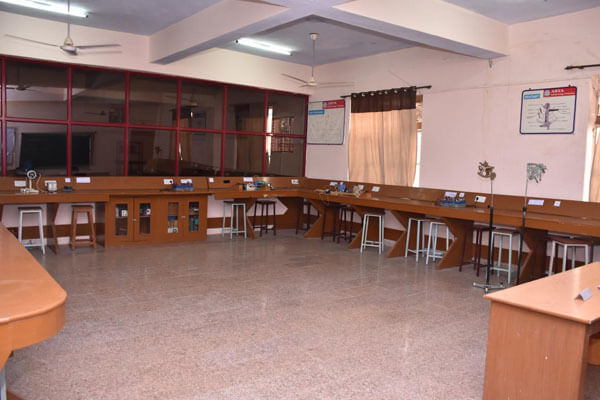
Physics Labs
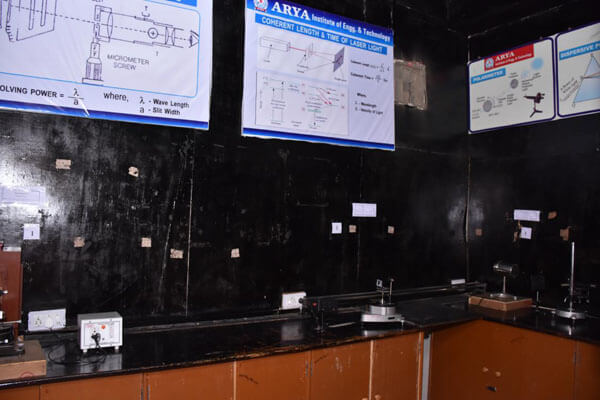
Physics Dark Room
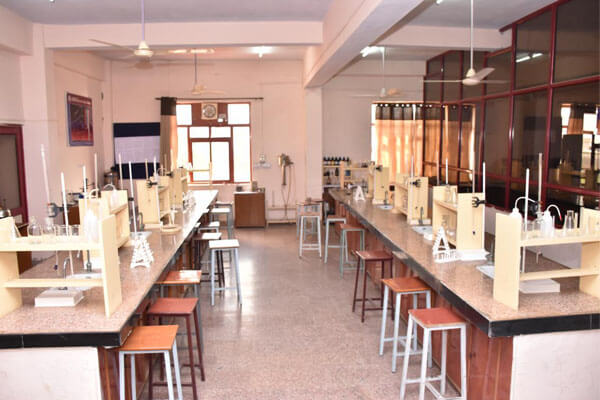
Chemistry Labs
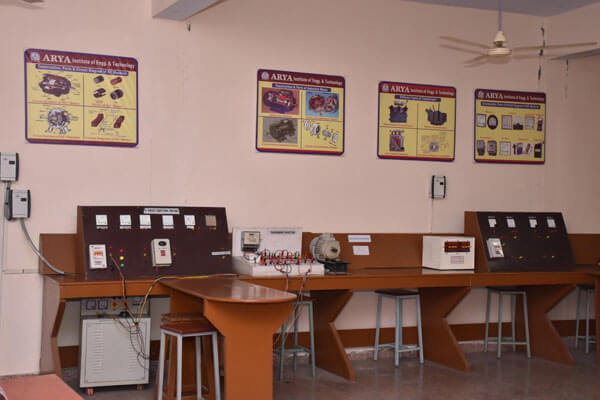
Electrical & Electronics Lab
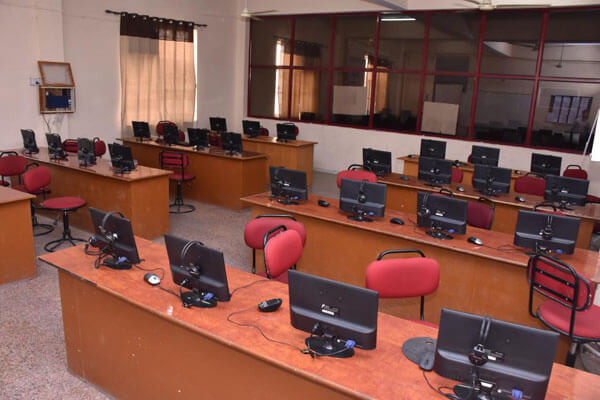
Language lab
Vision And Mission:
Vision: To be the Prime Source of Education, Workforce Training, Partnerships and Economic Development.
Mission: The mission of ACE - Arya College of Engineering is to provide innovative educational environment, opportunities, and experiences that enables individuals, communities, and the region to grow, thrive, and prosper.
Department Specializations:
a) Focus Area:
The teaching module comprise of lectures, tutorials and practicals. The methodology adopted in the classroom teaching is based on the application of innovative strategies, comprehensive lectures, regular assignments and interaction between teachers and students.
b) Digital Notes:
Our classes are made interactive with the use of power point presentations, videos and demos, wherever possible. Students are encouraged to give seminars on latest developments on some of the topics being taught.
c) Evaluation System:
The department has its unique way of evaluating the performance of students. Regular assignments and unit test at the completion of each unit guides the students about RTU curriculum and therefore boost their confidence for the examination.
The department also conducts test series for the students in order to improve their performance in the examination. Extra classes are also conducted if the students are not able to understand certain topics.
d) Student Development and Campus Recruitment Training (CRT) Cell
A group of ignited minds clustered together to provide regular inputs for the complete development of a student. The main objective of student development cell (SDC) is to identify the potential of each student and to facilitate them in achieving their academic goods through various clues.
It provides an exclusive platform for different dimension of learning networking and socializing outside of the classroom. SDC organizes a variety of events such as workshops, skill development courses, power lecture series, motivational seminars, value added courses and many more to mention.
Placements
Syllabus:
AICTE approved & RTU Affiliated syllabus
Success Oriented Results:
The department is renowned for the best results of University Exams. The unique assignments system and model papers play a vital role in contributing the best results in University Exams.
Conferences/Seminars and Workshops:
Arya also provides a good platform to its educators as well as scholars for their exposure in various national & international conferences, seminars and workshops to show their talents in various fields.
Faculty Development Programs (FDP):
We also organize several Students Orientation Program & Faculty Development Programs so that they may keep a pace with this technocratic world and fulfill the demands of the time.
Course Outcomes (COs)
| S.No. | Course Code | Course Title | Course Outcomes (COs) |
|---|---|---|---|
| 1 | 1FY2-01 | Engineering Mathematics I | CO1 :Learn the concept of solid of revolution and improper integral. Able to solve complex definite integral problem. |
| CO2:Learn about infinite series and their convergence properties. | |||
| CO3:To understand initial conditions of Fourier series and its application in different engineering models. | |||
| CO4: Perform differential calculus operations on function of several variables including continuity, partial derivatives and directional derivatives.Able to solve multivariable optimization problems. | |||
| CO5:Learn the concept to solve multiple integrals in different coordinate systems including Cartesian and polar coordinates and its applications. Use the theorems of vector calculus such as the Green’s theorem, the Divergence theorem and Stoke’s theorem to simplify integration problems. | |||
| 2 | 2FY2-01 | Engineering Mathematics - II | CO1:Learn the essential tools of matrices and linear algebra including linear transformations, and Eigenvalues. |
| CO2:To understand the formation of differential equations from the given physical problems and to apply the knowledge of first-order differential equations in different engineering applications. | |||
| CO3:Apply effective mathematical tools for the solutions of ordinary differential equations of higher order that model physical phenomena and engineering problems. | |||
| CO4:Have a better understanding of partial differential equations of the first order and their solution processes that are used in various techniques dealing with engineering problems. | |||
| CO5:Able to solve basic engineering models through partial differential equations such as wave equations, heat equations, and laplace equations. | |||
| 3 | 1FY2-02/FY2-02; | Engineering Physics | CO1 :Graduates gain the ability to the knowledge of fundamental physics of optics about the interference of light and X-ray diffraction. |
| CO2:Graduates will be able to identify the probability of the finding particle through quantum mechanics. | |||
| CO3:Graduates will be able to apply the design process of optical fiber and LASER. | |||
| CO4:Graduates will be able to analyze the bonding of the materials and semiconductors. | |||
| CO5:Graduates will be able to understand the electromagnetism and interpret the Maxwell’s equations. | |||
| 4 | 1FY2-03/2FY2-03 | Engineering Chemistry | CO1 : To define, determine, remove hardness & purify the water by applying suitable techniques. To develop an understanding of the technology involved in improving the quality of water for its industrial use. |
| CO2: To determine, numerically calculate & analyze the calorific value of different fuels. Also, synthesizes synthetic petrol through various methods. Identify instrumental techniques for analysis & analyze the quality parameters of chemical fuels. | |||
| CO3: To define & analyze engineering problems related to corrosion & solve the corrosion problems by different techniques & methods. | |||
| CO4: To understand the manufacturing of Cement & Glass by suitable technology. Identify & compare different materials like cement, and glass best suited for construction. | |||
| CO5: To understand the reaction mechanism involved in the synthesis of various chemicals & drugs. | |||
| 5 | 1FY2-03/2FY1-04 | Communication skills | CO1 : Graduates gain the ability to understand classes needed for the communication major and emphasize the overall development of the child. Understand the meaning, process, and importance of communication and overcome communication barriers |
| CO2:The graduate will be able to communicate effectively in both verbal and written form. They will develop better, presentation skills on academic and personal grounds that will enhance their personality in all aspects. | |||
| CO3: Graduates gain knowledge about various air conditionings also graduates will be able to enhance their reading and writing skills by analyzing various comprehensions. | |||
| CO4: The graduate will be able to enhance reading and writing skills by analyzing various literary texts. They should be able to mold the fictional world into the real world. | |||
| CO5: Graduate will be able to learn the use of poetic devices and they should enhance their style of writing. | |||
| 6 | 1FY1-05/2FY1-05 | Human Values | CO1 : Graduates gain the ability to understand the Values needed to become good human beings. Skill with Values makes the complete meaning of development and complements each other. |
| CO2: The graduate will be able to understand their goal through self-exploration and able to make the Right Decision in every aspect of life enhancing their personality in all aspects. With the Right Understanding, They can live a balanced life, with a true sense of prosperity. | |||
| CO3: Graduate by learning not only in Professional life, but all levels of Living/order enable to with Harmony. Harmony with Self along with Harmony of Family, Society, and Nature. | |||
| CO4: Graduate by Learning Values, able to become Self-confident, able to develop to judge the facts, and decide by Natural Acceptance not Merely by Imagination and Pre-conditions. | |||
| CO5: The graduate will be able to learn Professional Ethics and a Code of Conduct to lead a Disciplined life and make Substantial growth both in Professional life and Personal Life. | |||
| 7 | 1FY3-06/2FY3-06 | Programming For Problem Solving | CO1 : Graduates gain the ability to understand the fundamentals of computer architecture and stored programs. It provides a basic understanding of the software used in the compilation process. |
| CO2: Graduates will be able to analyze and understand programming language in the context of the basic structure of C programming, data types, operators, variable declaration, and input/output functions. | |||
| CO3: Graduates gain the ability to develop programs using basic elements like control statements with conditional and iterative statements, arrays, strings, and pointers. | |||
| CO4: Graduates can understand the concept of effective usage of structures and functions to understand memory management concepts. It elaborates on the issues in file organization and the usage of file systems. | |||
| CO5: Graduates gain the ability to obtain knowledge about the number systems which will be very useful for bitwise operations. | |||
| 8 | 1FY3-07/ 2FY3-07 | Basic Mechanical Engineering | CO1 : Graduates understand the fundamentals of mechanical engineering. Various classifications of boilers based on the direction of the axis and flow will help them to better understand boilers and various accessories and mountings. They can understand the working of various steam turbines such as reaction and impulse turbines along with the working of different power plants such as Thermal, nuclear, and hydro power plants. |
| CO2: Graduates gain the ability to understand the workings of centrifugal and reciprocating pumps. They learn various aspects of four-stroke and two-stroke IC engines along with PV, TS, and valve timing diagrams. | |||
| CO3: Graduates understand about Refrigerants and their nomenclatures. A comparative study of the vapor compression refrigeration system and vapor absorption refrigeration system clarifies every minute difference between both systems. Graduates gain knowledge about various air conditioning also. | |||
| CO4: Graduates differentiate and formulate various arrangements such as Open and cross-belt drives. The study of rope drive, gear, and design of belt for deriving the values of maximum power, tension ratio, velocity ratio, slip, and length of belt generates the ability to have a problem-solving approach in graduates. | |||
| CO5: Graduates gain the ability to understand various manufacturing processes such as Casting, forming, and joining. The study of various engineering materials helps them to know about various metallurgical properties and their proper implementation in engineering aspects. Graduates come to know how the proper selection of heat treatments such as annealing, normalizing, tempering, hardening, and quenching, reduce the dependency on expensive materials. | |||
| 9 | 1FY3-08/2FY3-08 | Basic Electrical Engineering | CO1 : Graduates gain the ability to understand the basics of Electrical DC circuit solving, and various DC circuit solving techniques by learning theorems and Mathematical approaches. |
| CO2: Graduates analyze and understand the AC representation in single and tree phases, its working and characteristics, and can analyze the behavior of AC through a Mathematical approach. | |||
| CO3: Graduates gain the ability to visualize and identify Electrical machines. Learn the basic concept of Electrical machines such as transformers, motors, and generators and can learn to draw construction parts. | |||
| CO4: Graduates can understand the Design of semiconductors. Understanding and analyzing converter, inverter, rectifier, and their practical application. Applications of these in projects and industries | |||
| CO5: Graduates gain the ability to understand the LT switch gears and their layout, and configurations; they can also learn the different kinds of switchgear and Earthing techniques. | |||
| 10 | 1FY3-09/2FY3-09 | Basic Civil Engineering | CO1 : Graduates gain to define the scope, Specialization, and role of Civil Engineering along with the Impact of infrastructural development on the economy of the country. |
| CO2: Graduates analyze and understand the field of surveying, its methods, and the instruments used in the field to perform the survey work along with applications. | |||
| CO3: Graduates gain the ability to visualize the concept of building construction and can learn to understand the concept of RCC along with the importance of different factors required for building construction. | |||
| CO4: Graduates can understand the concept of transportation and learn the various traffic signs along with the importance and measures for road safety. | |||
| CO5: Graduates gain the ability to understand the concept of environment engineering which includes the concept of ecology and biodiversity, treatment of water, its usage and saving, and be able to define and learn about the various environmental pollutions and factors such as global warming, greenhouse effect, and climate change. | |||
| 11 | 1FY2-20/2FY2-20 | Engineering Physics Lab | CO1 : Understand the deep learning of Interference, diffraction, dispersion of light, and height of a celestial object with the use of optical concepts. |
| CO2: Describe and demonstrate the behavior of semiconductor characteristics. | |||
| CO3: Show the charging and discharging behavior of the capacitor with time in the form of electrical energy. | |||
| CO4: Interpret the principle of optical fiber and demonstrate this principle with the help of LASER. | |||
| CO5: Describe the effect of Hall's effect | |||
| 12 | 1FY2-21/2FY2-21 | Engineering Chemistry Lab | CO1 : Explain various methods of volumetric analysis i.e. redox, iodometric, complexometric, neutralization, etc of the water sample. |
| CO2: Apply the use of internal and external indicators and their comparison for redox titration and the use of the double indicator method in a single titration. | |||
| CO3: Estimate the % value of moisture, volatile matter, ash, and carbon of fuel by proximate analysis and instrument handling. | |||
| CO4: Analyze the properties of lubricant via Flash and fire point, viscosity, cloud, and pour point and their significance. | |||
| CO5: Explain synthetic techniques of drugs like Aspirin and paracetamol. | |||
| 13 | 1FY1-22/2FY1-22 | Language Lab | CO1 :Understand and apply the phonetic symbols and transcriptions in speaking the correct English language. |
| CO2:Convince and justify the rationale of one’s perspectives in Extempore | |||
| CO3:Convince and justify the rationale of one’s perspectives in GD. | |||
| CO4: Learn the techniques and art of dialogue writing/speaking and using them in appropriate contexts. | |||
| CO5: Understand and interpret the intended meaning in the audio-visual communication. | |||
| 14 | 1FY1-23/2FY1-23 | Human Values Activity and Sports | CO1 : Understand and analyze the essentials of human values and skills, self-exploration, happiness, and prosperity. |
| CO2: Evaluate the coexistence of the “I” with the body. | |||
| CO3:Identify and evaluate the role of harmony in a family, society, and universal order. | |||
| CO4: Understand and associate the holistic perception of harmony at all levels of existence. | |||
| CO5: Develop appropriate technologies and management patterns to create harmony in professional and personal lives. | |||
| 15 | 1FY3-24 /2FY3-24 | Computer Programming Lab | CO1 : Understand and describe the structure of a C program to explain, write, compile, and execute programs using input and output statements. |
| CO2: Classify and write programs by applying the decision control statements and loop control statements using different operators. | |||
| CO3: Formulate, analyze, and solve the problem by writing programs using pointers, arrays, and strings. | |||
| CO4: Design object-based programs by creating new data types using structure and union. | |||
| CO5: Understand and use the concept of functions and file operations; moreover, design new functions to solve module-driven problems. | |||
| 16 | 1FY3-25/2FY3-25 | Manufacturing Practices Workshop | CO1 : Understand the appropriate tools, materials, and instruments required for specific operations in the workshop. |
| CO2: Apply techniques to perform basic operations with hand tools and power tools such as a center lathe machine, or drilling machine using a given job drawing. | |||
| CO3: Apply techniques to perform basic operations with hand tools and power tools such as a center lathe machine, or drilling machine using a given job drawing. | |||
| CO4: Understand a report related to hand tools and machine tools description referring to library books and laboratory manuals. | |||
| CO5: Understand reports of procedures followed for a given task in fitting, carpentry, foundry, sheet metals, welding, and machine shops. | |||
| 17 | 1FY3- 26/2FY3-26 | Basic Electrical Engineering Lab | CO1 : Analysis of Resistive Circuits and Solution of resistive circuits with independent sources |
| CO2: Two Terminal Element Relationships for inductors and capacitors and analysis of magnetic circuits | |||
| CO3: Analysis of Single Phase AC Circuits, the representation of alternating quantities, and determining the power in these circuits | |||
| CO4: To acquire the knowledge about the characteristics and working principles of semiconductor diodes, Bipolar Junction Transistor | |||
| CO5: To get an insight about the basic introduction of Power Measurement and Protecting Equipments. | |||
| 18 | 1FY3-27/2FY3-27 | Basic Civil Engineering Lab | CO1 : Calculate the distance, and angle of the survey station and take the offset of the building using tape, chain, and compass. |
| CO2: Determine the vertical elevation and angles by using Auto level and dumpy level. | |||
| CO3: Discuss and demonstrate the measurements using various electronic surveying instruments like EDM, and Total Station. | |||
| CO4: Understand and calculate the physical and chemical properties of a given sample of water. | |||
| CO5: Understand various water supply and sanitary fitting equipment. | |||
| 19 | 1FY3-28/2FY3-28 | Computer Aided Engineering Graphics | CO1 : Draw and explain various engineering scales and curves. |
| CO2: Draw and explain orthographic projections of points, lines, and planes. | |||
| CO3: Draw and explain projections of solids. | |||
| CO4: Draw and explain the section of solids. | |||
| CO5: Explain various commands and create drawings in AutoCAD. | |||
| 20 | 1FY3-29/2FY3-29 | Computer Aided Machine Drawing | CO1 : Draw and explain the conventional representation of machine components and material. |
| CO2: Explain the concept of first and third-angle projections and prepare drawings of simple machine elements. | |||
| CO3: Draw and explain sectional views for various parts. | |||
| CO4: Draw and explain various types of temporary and permanent fasteners. | |||
| CO5: Draw freehand sketches of lines, materials, and various components i.e. bearings, couplings, welded joints, pipe joints, valves, etc., and Explain various commands and create 2D computer-aided drawing software. |





